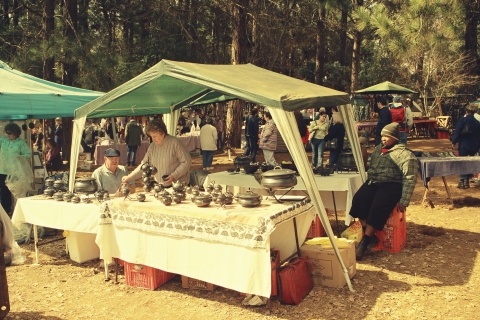[The next piece was initially recorded in my notebook on the weekend of Friday, 27 June to Sunday, 29 June 2003, in my favourite place in this region, Hong Kong.
There was a problem with the booking of my flight between Hong Kong and Johannesburg. I arrived in Hong Kong on Friday morning at eleven o’ clock, but because I immediately had to meet an old friend at the airport, I didn’t confirm my flight to Johannesburg later that evening.
After brunch in the city my friend had to rush back to the airport. I walked around for the rest of the day and enjoyed myself thoroughly. At around nine o’clock in the evening back at the airport, a lady at the check-in counter courteously informed me that they were overbooked. She further explained that I had no choice but to wait for the next flight – which would only depart on Sunday night.
At first, I was taken aback. I had only had two hours sleep the previous night, and I was exhausted from all the walking around that afternoon and early evening. The lady assured me that they would provide a room in a good hotel, and a limousine that would take me directly to my lodgings for the weekend. And if I still thought about writing angry letters to the airline, they also conveniently had HK$2,500 on hand with which I could amuse myself (a sum of money roughly equal to so many South African rand, or about USD300).
I said I was very angry because it was my birthday on Sunday, and what now? But the fun I had had during one day in Hong Kong weighed heavily on my mind, and who was I to be rude when a big corporation wanted to pay me to spend an extra two days in one of my favourite cities? I said, okay fine, get my bags and show me where to get that limo.
I started writing the following note shortly after my registration at the counter for which I truly thought was going to be a long, luxurious car that would transport me to the hotel.]
SUNDAY, 29 JUNE 2003
I find myself in one of those absurd situations where I, the “poor white” poet, has to be treated like I’m rich and important. All the parties, myself included, are somewhat confused.
“But everyone can see there’s a tear in his shirt,” I imagine the young lady whispering to her colleague.
“I know. Shush …” the older man probably replies.
Telephonic confirmation is made in hushed tones. Sweat is wiped from a brow. Eventually everyone realises the unpleasantness simply has to be endured.
“Please come with me … sir,” the man with the sweaty brow reluctantly commands.
The Poor White Poet hesitates for a moment, first heads in the wrong direction, and is then called to a row of comfortable red chairs. An orange sticker is stuffed in his hand. He correctly interprets the label as a badge indicating his new status as someone who should be treated like other people who spend time at luxury hotels. He plasters it on his light blue “Tokyo III” shirt. It keeps peeling off. The other stickered individuals are several chairs removed from the poet. He speculates that it may be because of the small tear in his shirt, and doesn’t immediately consider the possibility that, after a day’s walking around in hot, humid Hong Kong, he no longer smells of the cologne he had so arrogantly sprayed under his arms that morning.
After fifteen minutes, the man who had given them the stickers approaches again. “This way please,” he friendly winks to the waiting group. This time the Poor White Poet walks out in front. Then he remembers the deodorant spray he had thrown in his bookbag and is suddenly annoyed with himself for making notes rather than refreshing himself.
Over the next two days the poet wised up to one important thing: One learns. In fact, the whole fancy hotel business, like the fancy restaurant business and certainly all the parts of a luxurious life are a game. You can figure out the rules and tricks of a complex video game and master it to some extent after a few practice runs. Even more so with the fancy business.
It’s about confidence. The more you are exposed to situations where you have to make certain “movements”, like in a video game, the more you learn to do it right. And the more you learn, the fewer mistakes you make. And the fewer mistakes you make, the more your confidence increases – and the less your sensibility becomes to being a stranger in an environment where you don’t really belong.
——————–
[After two days and three nights the poet reached the town of which he had been dreaming for months – Bronkhorstspruit, fifty kilometres north of Pretoria. Forgotten were the months of adolescent humiliations and growing pains (have I mentioned that he had spent his primary school days here?). The school where he was prefect in his day, looks different, smaller. The Vetkoek Corner is still on the corner, but with a different name. The town seems generally shitty, but there was a joy to being back. And it was winter, the man’s favourite season. Dead yellow grass, a chill in the late afternoon air, and the smell of coal all overwhelmed the senses with a bashful question: “Welcome home?”]
______________________

